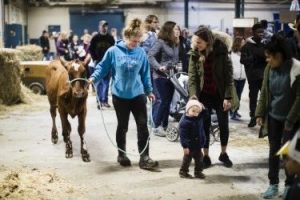If you’ve driven on the Pennsylvania Turnpike recently, you may have noticed, the tolls are high.
This year, it cost the average turnpike driver $1.30 to go through a toll if they were using an EZ Pass, and $2.10 if they paid cash. Next year, that’ll go up eight cents for EZ Pass users, and 15 for cash. Truckers pay even more.
Tolls have gone up every single year since 2009, and are now about 200 percent higher than they were a decade ago. It’s more expensive to drive through Pennsylvania than New York, or New Jersey, or Ohio. And it looks like those costs will keep rising in the foreseeable future.
Now, you might—reasonably—ask, where’s all the money going?
The answer is complicated. But basically, in 2007, the state passed a law—Act 44—that said the Pennsylvania Turnpike Commission had to pay 450 million dollars to the Department of Transportation every year. About half that money would go toward mass transit projects, and the rest would go toward non-turnpike highway improvements.
The turnpike raised tolls to cover the costs…and then kept raising them. In 2014, the state passed a new law routing all the turnpike funding toward mass transit, and significantly reducing the payments after 2022. But there’s no guarantee tolls will stop going up.
That’s an issue for a lot of people in the commonwealth. Lawmakers—including Governor Tom Wolf—have said they’re concerned the cost to use the turnpike drives drivers elsewhere. And it also has the potential to hurt Pennsylvania’s trucking industry.
So in this episode, we visit a truck stop. We also talk to the president of a trucking advocacy group that’s suing the state, and get a rundown of the situation from the perspective of a longtime turnpike official.
Podcast: Play in new window | Download
Subscribe: Apple Podcasts |





